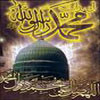
Previous Prophets mentioned some of the characteristics of the Prophet of Islam in their heavenly books, giving their followers the glad tidings of his future appearance.
As the Qur'an says: "Those to whom We sent books (the Jews and the Christians) know well of Muhammad and his truthfulness, just as they know their own children, but some of them obstinately hide the truth, although they are well aware of it." (2:145)
In the troubled world of those days, cultural and moral decline, together with polytheism and idolatry and all their ramifications had submerged the whole globe. Even the heavenly religions that had followers in different parts of the world had undergone radical change in the course of time; not only had they lost all vitality and ability to guide mankind, but their most creative elements had fallen prey to decline. There was no hope of infusing a new spirit of life in them, of making blood course once again through their hardened arteries.
The People of the Book were therefore waiting for some profound eruption and the emergence of a new heavenly personality who would bear on his capable shoulders the heavy burden of guiding mankind, leading them away from decaying systems of thought to a new and progressive teaching.
The world had reached the end of its tether in the midst of all that confusion and unrest. It longed for a whole new environment, different from the poisoned one in which it lived, and waited for a hand to emerge from the sleeve of the unseen which would destroy the crumbling structure of the old order and build a new one on its ruins.
Each of the peoples and nations that were then dominating the world had in some way fallen prey to anarchy and confusion. The Arabs who lived at the crossroads of the great powers of that age and whose broad homeland was traversed by the caravans of international commerce felt more powerfully each day their weakness and impotence vis-a-vis their powerful neighbors. The danger of complete extinction that faced the Arabs because of their lack of an organized political structure and because of the power of their oppressive neighbours was plain to any farsighted person.
It was under these circumstances that the promised deliverer Muhammad, upon whom be peace, was born at dawn on Friday, the seventeenth day of the month of Rabi' al-Awwal, fifty three years before the migration (hijra), corresponding to the year 570 of the Christian era, in the city of Mecca in the Arabian Peninsula. It was a land of stifling repression, the very symbol of a sick and decadent society where ignorance was actively cultivated. It was like a swamp where the waters of corruption stagnated, a pit in which humanity had been buried.
It was in such a place that the Prophet first set eyes on the world and the light of his splendor first shone on the horizons of human life; it was there that this quintessence of being who was destined to bring human thought to maturity generated a new energy and an inexhaustible vitality in mankind.
None could reach his level of excellence in the qualities he possessed, and all expectations were fulfilled with his coming. He appeared at a time that society was prepared for him because it needed him. Not only the Arabian peninsula but the world at large was prepared for his coming, because the whole of the ancient world was longing with all of its being for the appearance of a man who would take it by the hand and guide it to its goal.
The sphere of the heavens, in its prolonged and ceaseless rotation had never been able to bring forth a creature like him whose substance was pure and free of all defect, who was completely untainted by all imperfection. History bears witness that this blessed infant, whose splendor shone forth from the arms of his mother, Aminah, over the whole world, came to establish the most creative of all faiths and the purest, most profound and pervasive of impetus, for the cultivation of knowledge and spirituality.
By prohibiting flattery and subservience before the thrones of the emperors and the powerful, he awakened to new life the dormant minds of human beings and created a suitable environment for their cultivation. He drove away idols from the threshold of their veneration, instructing them instead in the mysteries of Divine unity and teaching them how to live and die with dignity.
As a result of his teachings, idolatry gave way to monotheism and the worship of the one true God; ignorance yielded to knowledge and science, brotherliness, compassion, and other human virtues took the place of hostility, hatred and discord; and those who had been reared in an atmosphere of corruption and ignorance became the choicest specimens of humanity.
source : www.tebyan.net













